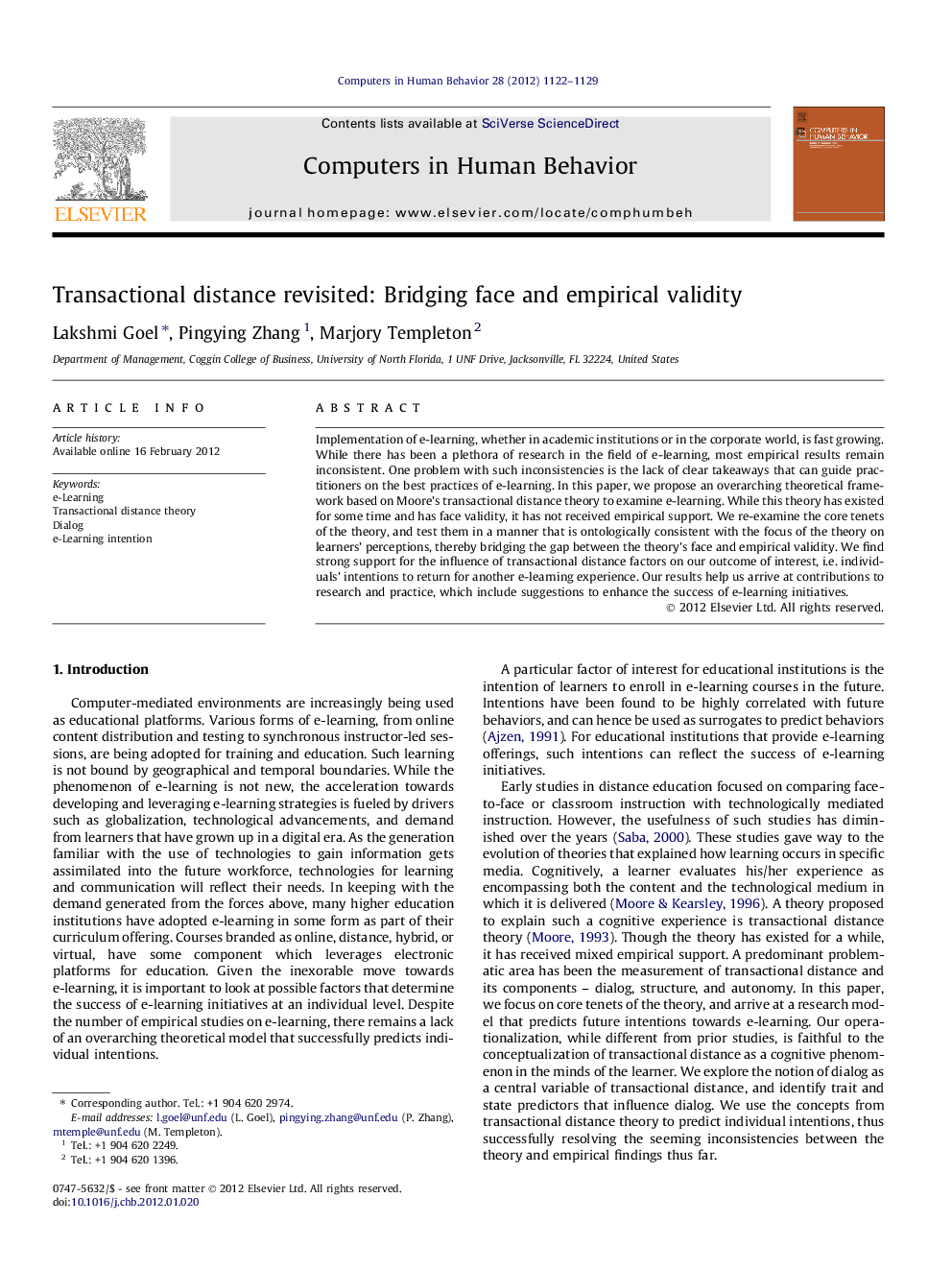| Article ID | Journal | Published Year | Pages | File Type |
|---|---|---|---|---|
| 351372 | Computers in Human Behavior | 2012 | 8 Pages |
Implementation of e-learning, whether in academic institutions or in the corporate world, is fast growing. While there has been a plethora of research in the field of e-learning, most empirical results remain inconsistent. One problem with such inconsistencies is the lack of clear takeaways that can guide practitioners on the best practices of e-learning. In this paper, we propose an overarching theoretical framework based on Moore’s transactional distance theory to examine e-learning. While this theory has existed for some time and has face validity, it has not received empirical support. We re-examine the core tenets of the theory, and test them in a manner that is ontologically consistent with the focus of the theory on learners’ perceptions, thereby bridging the gap between the theory’s face and empirical validity. We find strong support for the influence of transactional distance factors on our outcome of interest, i.e. individuals’ intentions to return for another e-learning experience. Our results help us arrive at contributions to research and practice, which include suggestions to enhance the success of e-learning initiatives.
► Propose an overarching framework for e-learning based on Moore’s transactional distance theory. ► Reconceptualize transactional distance factors to be consistent with theory’s tenets. ► Identify antecedents of transactional distance factors based on human and structural factors. ► Find strong support for empirical validity of the theory for e-learning outcomes. ► Results help us arrive at contributions to research and practice.
